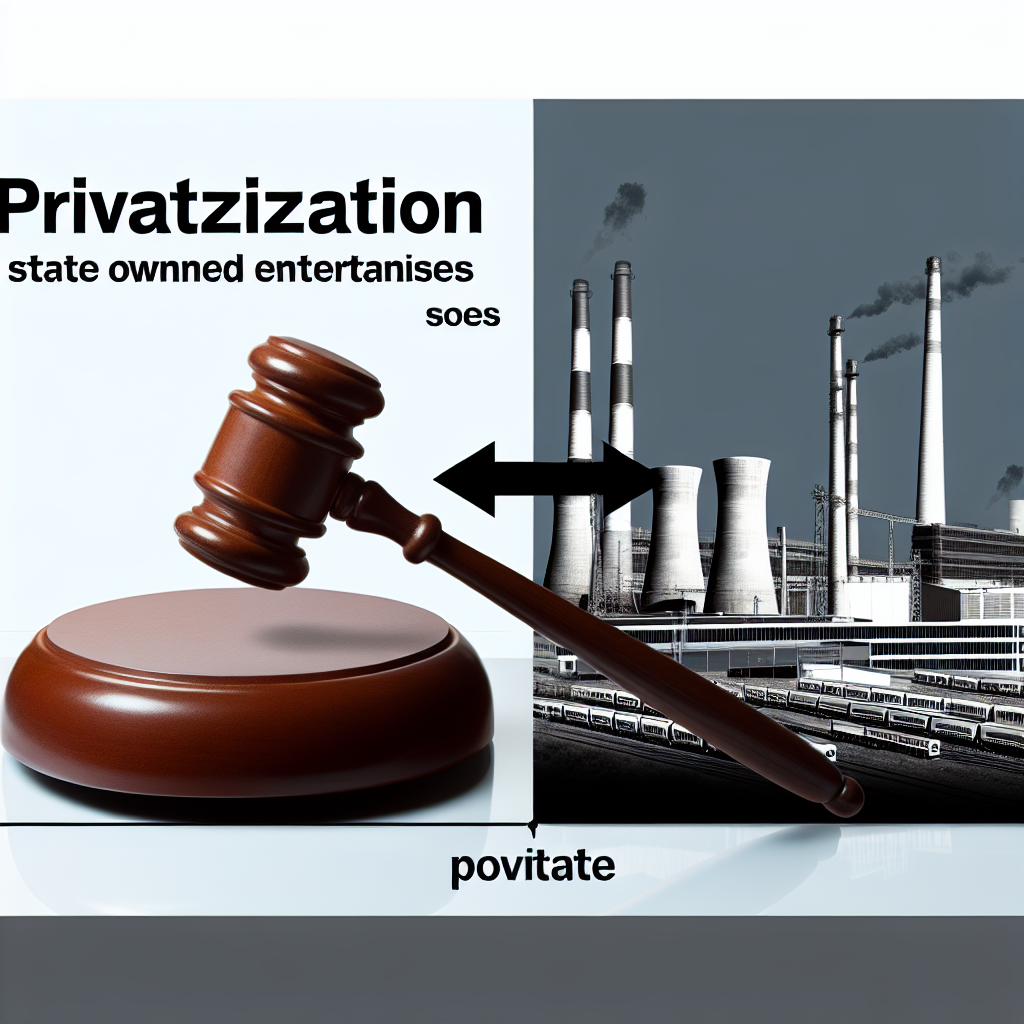
Privatization of SOEs: Legal Aspects of State Asset Sales
Introduction
The privatization of State-Owned Enterprises (SOEs) represents a vital process for governments seeking to enhance efficiency, spur economic growth, and attract foreign investments. However, the legal aspects of state asset sales are complex and multifaceted. This article explores the legal frameworks and compliance considerations surrounding the privatization of SOEs, offering insights for stakeholders navigating this intricate landscape.
Understanding SOEs and Their Role in the Economy
State-Owned Enterprises play a significant role in many economies by providing essential services and generating revenue for the government. They often operate in key sectors such as energy, transportation, and telecommunications. However, inefficiencies and the burden of state ownership can stifle innovation and growth.
Privatization of SOEs can lead to a more competitive market environment, encouraging investment and improving service delivery. Nevertheless, governments must consider various legal implications throughout the privatization process.
The Legal Framework for Privatization
1. Regulatory Compliance
Successful privatization requires adherence to a strict legal framework. Each country has its regulations governing the sale of state assets, often influenced by local laws and international best practices. Key areas of regulation include:
- Public Procurement Laws: Ensuring transparency and fairness in the bidding process.
- Antitrust Regulations: Preventing the creation of monopolies and maintaining competition.
- Investment Laws: Guidelines that facilitate foreign investments while complying with national interests.
2. Due Diligence
Prior to initiating a privatization process, conducting thorough due diligence is essential. This involves assessing the financial health of the SOE, reviewing existing contracts, and identifying any liabilities or legal encumbrances. The implications of inadequate due diligence can lead to significant legal repercussions post-transaction.
Stakeholder Engagement and Consultation
Engaging various stakeholders throughout the privatization process can mitigate legal risks and enhance public trust. Key stakeholders include government officials, potential investors, trade unions, and the general public. Transparency in communication can ease concerns and promote a smoother transition.
Legal Considerations in the Sale Process
1. Structuring the Transaction
Choosing the right transaction structure is crucial. Options may include full divestiture, partial privatization, or public-private partnerships. Each structure carries distinct legal implications, influencing risks and responsibilities for both the state and the buyer.
2. Contractual Obligations
Careful drafting of contracts is necessary to detail the terms of the sale, including:
- Pricing and payment structures
- Liabilities and indemnities
- Operational requirements post-privatization
Moreover, parties must adhere to local laws and ensure that all contractual agreements are enforceable in the relevant legal jurisdictions.
3. Compliance with International Standards
As globalization increases, adherence to international regulations and standards becomes paramount. Buyers may seek compliance with frameworks that enhance corporate governance and ensure ethical business operations, which may include anti-corruption measures and environmental regulations.
Post-Privatization Compliance and Monitoring
The journey does not end with the successful sale of a state asset. Continuous compliance monitoring is crucial to ensure that privatized entities adhere to regulatory requirements and fulfill contractual obligations. Establishing a robust compliance program can help mitigate legal risks and improve operational excellence.
The Role of Consultancy in Privatization
Engaging with a consultancy firm that specializes in the privatization of SOEs can prove invaluable. The Consultant Global offers extensive experience in navigating the complexities of state asset sales. Our unique expertise in international, governmental, and private sectors, complemented by a deep understanding of diverse cultures and languages, positions us as trusted advisors in the GCC and UAE.
With fluency in English, Turkish, Azerbaijani, Russian, and French, our consultants are equipped to bridge cultural gaps and provide tailored solutions for clients. At The Consultant Global, we believe in the importance of delivering value and building long-lasting relationships with our clients. Our commitment is to empower businesses by enhancing their compliance frameworks and optimizing the privatization process.
Conclusion
In conclusion, the privatization of SOEs presents opportunities for economic growth but also poses significant legal challenges. Understanding the legal aspects of state asset sales, including compliance requirements, stakeholder engagement, and post-privatization monitoring, is crucial for a successful transition. With its vast experience and a commitment to excellence, The Consultant Global stands ready to assist clients through this intricate process, ensuring they achieve their goals while navigating legal complexities effectively. Together, we can chart a course that enhances operational efficiency and promotes sustainable growth in the evolving economic landscape.




Leave a Reply